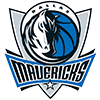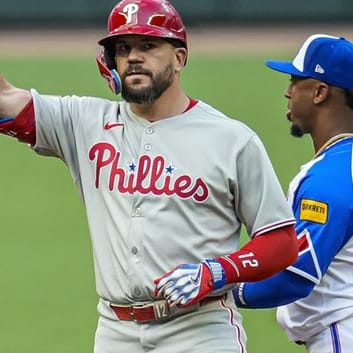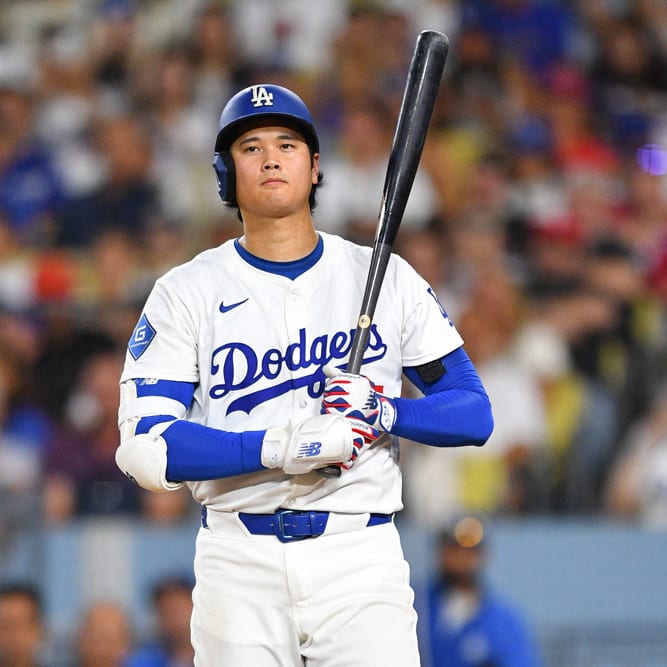When I was younger, my heroes took performance-enhancing drugs. They had oversized heads, unnatural strength and were quick to a fight. But they sure swung a mean stick. Oh, they were also green all over, loved pizza, and went by the names Leonardo, Donatello, Raphael, and Michelangelo. I never felt a twinge of guilt or confusion of conscience cheering for my heroes on television. Things were much simpler back then.
For those unfamiliar with the scandal that has unfolded over the past few months, here's a quick refresher. Last summer, several players; Melky Cabrera, Bartolo Colon and Yasmani Grandal, all with connections to the Miami area, tested positive for excessive levels of testosterone. MLB launched an investigation, which eventually led to Tony Bosch, founder of the Biogenesis of America "wellness" clinic in Miami. MLB repeatedly interviewed former Biogenesis employees and Bosch associates and obtained a number of Biogenesis documents. Throughout the investigation, a number of well-known players were allegedly linked to performance enhancing drug (PED) use, including both Ryan Braun and Alex Rodriguez. Braun's name, in particular, appears on at least two Biogenesis documents, one that lists him as owing $20,000 to $30,000 and another that says he owed $1,500 for what sources said were PEDs. Braun has denied ever using or receiving PEDs and claims that the money owed to Bosch was for consulting. In late March, MLB sued Biogenesis, Bosch and six other company officials for "tortious interference," a legal theory essentially alleging that the
When I was younger, my heroes took performance-enhancing drugs. They had oversized heads, unnatural strength and were quick to a fight. But they sure swung a mean stick. Oh, they were also green all over, loved pizza, and went by the names Leonardo, Donatello, Raphael, and Michelangelo. I never felt a twinge of guilt or confusion of conscience cheering for my heroes on television. Things were much simpler back then.
For those unfamiliar with the scandal that has unfolded over the past few months, here's a quick refresher. Last summer, several players; Melky Cabrera, Bartolo Colon and Yasmani Grandal, all with connections to the Miami area, tested positive for excessive levels of testosterone. MLB launched an investigation, which eventually led to Tony Bosch, founder of the Biogenesis of America "wellness" clinic in Miami. MLB repeatedly interviewed former Biogenesis employees and Bosch associates and obtained a number of Biogenesis documents. Throughout the investigation, a number of well-known players were allegedly linked to performance enhancing drug (PED) use, including both Ryan Braun and Alex Rodriguez. Braun's name, in particular, appears on at least two Biogenesis documents, one that lists him as owing $20,000 to $30,000 and another that says he owed $1,500 for what sources said were PEDs. Braun has denied ever using or receiving PEDs and claims that the money owed to Bosch was for consulting. In late March, MLB sued Biogenesis, Bosch and six other company officials for "tortious interference," a legal theory essentially alleging that the defendants intentionally obstructed MLB's efforts to rid baseball of PEDs.
Now, in exchange for agreeing to cooperate with baseball, MLB will reportedly drop Bosch from its lawsuit, indemnify him for any costs associated with his cooperation and defend his character should he face criminal charges. Thus, Bosch is allegedly ready to start spilling names in potentially the largest performance enhancing drug scandal in the history of American sports. Further, according to ESPN's "Outside the Lines," MLB will seek to suspend about 20 players connected to Biogenesis, including Rodriguez and Braun, even though most have never failed MLB's mandatory drug test.*
* According to "Outside the Lines," among the players who might ultimately face discipline: Braun (MIL), Rodriguez (NYY), Evereth Cabrera (SD), Melky Cabrera (TOR), Francisco Cervelli (NYY), Bartolo Colon (OAK), Nelson Cruz (TEX), Fautino de los Santos (Free Agent), Gio Gonzalez (WAS), Yasmani Grandal (SD), Fernando Martinez (HOU), Jesus Montero (SEA), Jordan Noberto (Free Agent), Jhonny Peralta (DET), Cesar Puello (NYM), and a number of other players who either are identified by code names or whose names appear in other documents that have yet to be revealed.
All of this has fantasy owners in full-blown panic mode. Braun was a top-3 pick in the majority of fantasy leagues. Cruz is on pace to hit a career-high 39 home runs. The diminutive Evereth Cabrera, one of the last players you'd think to be caught up in a PED scandal, leads the majors in stolen bases. There is no denying that there are a lot of talented players on this list. I'm here to tell you, however, to take a deep breath and relax. This one's going to take a while to clear up.
To begin with, the collective bargaining agreement between the players' union and the league (CBA) calls for a 50-game suspension for first-time violators of the performance enhancing drug policy when a positive test is recorded. A second positive test results in a 100-game suspension. There are also other provisions within the CBA that allow for MLB to enforce lesser suspensions for players convicted without a positive test. Those suspensions – for "conviction for use of prohibited substances" – range anywhere from 15-to-30 games for first-time offenders and come with a $10,000 fine. One source familiar with the case said the commissioner's office might seek 100-game suspensions for Rodriguez, Braun and other players, the penalty for a second doping offense.
MLB already has established precedent to suspend a player for two offenses in one shot. In March, minor leaguer Cesar Carrillo was suspended for 100 games after being confronted with Biogenesis documents containing his name and then denying having any connection to Bosch or the clinic. However, because Carrillo was on a minor league contract and thus not a member of the MLB Players Association, he was not entitled to an appeal through arbitration.
Should MLB attempt to suspend any or all of the players allegedly named in the Biogenesis documents, the major league players, unlike Carrillo, can and are expected to take the fight to another level. Under the CBA, players can file a grievance and present evidence in arbitration. Though the rules of evidence and procedure are not as stringent as those at trial, in the hearing before the arbitrators, the players will be afforded the opportunity to challenge Bosch's veracity to paint his testimony as uncorroborated and unreliable (much like Roger Clemens' attorneys did to his former trainer Brian McNamee in Clemens' perjury trial last year). Players will also have the chance to challenge all of the other evidence MLB presents, which worked effectively for Braun just last year in his appeal of his positive test for PEDs. MLB will need to show that both the Biogenesis documents it collects and the employees that it interviews support the stringent suspensions it hopes to impose.
The arbitration is supposed to be final. But, in the event of 100-game suspensions, the players might try to challenge MLB and the arbitration decision in court in the form of a lawsuit. It would be a long shot. The law favors deferment to the decisions of arbitrators, and judges are reluctant to intrude on arbitrators and their findings.
While all of this may point to a very strong possibility that the day of reckoning could come for a great number of MLB's steroid users, no discipline is imminent, which is welcome news for fantasy owners of any of the players indicted. First, baseball officials will continue to try to gather and confirm evidence to ensure that they have the best possible case before handing down any suspensions. MLB has also announced that it will interview players about the latest allegations before deciding any discipline. None of the named players have been interviewed yet as part of any disciplinary consideration. Secondly, and most importantly, the players' union is expected to fight tooth and nail against any MLB suspensions based off of Bosch's testimony or the Biogenesis documents. Even if MLB decided to hand down suspensions for all players allegedly involved in the scandal, any appeal by the players would delay the enforcement of such a suspension until the grievance is resolved in arbitration. According to ESPN's legal analyst Lester Munson, the arbitration process would "easily" stretch into early 2014 and potentially through spring training of next year. It is therefore a near certainty that no players will be suspended in connection with this scandal in 2013.
For fantasy owners in typical, yearly leagues, this means you shouldn't go trading off Braun for the likes of Daniel Nava. There is a reason Braun was a top-three pick in virtually all fantasy leagues. He's a proven superstar, and he's dealt with having his name in the news for these types of issues before. While it's certainly possible he won't be able to escape suspension this time around, he almost certainly won't miss any games in 2013 for his alleged PED usage.
On the flip side, now might be the perfect time for an astute owner to attempt to buy-low in the aftershock of the recent reports. While it's unlikely you'll be able to pry Braun from an owner who invested heavily in him, players like Nelson Cruz, Gio Gonzalez (when healthy), and Melky/Evereth Cabrera who were all named in the report make for reasonable buy-low targets whose price tags could be reduced with the uncertainty surrounding the situation.**
**For those in keeper or dynasty leagues, the analysis is not so cut-and-dry. With suspensions certainly a possibility next year, keeping a player who may face suspension becomes a riskier proposition and requires the appropriate cost-benefit analysis. Unfortunately, at this point, we know very little about the actual evidence MLB already has against each individual player, so it is nearly impossible to project the outcome of any suspensions or challenges down the road.






































